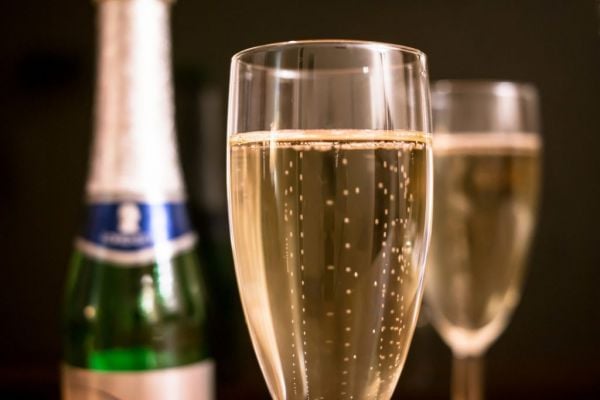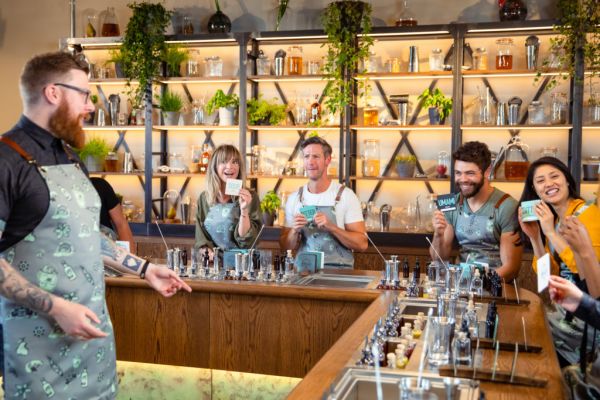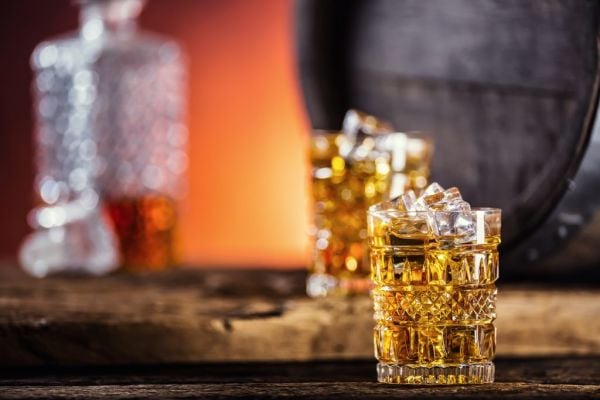Gordon Hunt talks to Stefan Bomhard, European regional president of Bacardi about the company's current performances - and finds out how important a market like Ireland is to such a huge global name.
"The current scenario in Europe – and indeed the world – would probably not even make the top five headlines in our history,” laughs Stefan Bomhard, Bacardi’s regional president of Europe, as he thinks back over all the crazy instances in Bacardi’s past. That history is 150 years old this year, and makes for some interesting reading. Don Facundo Bacardí Massó started the company in Cuba, in 1862, when he and his family started to produce rum for a local market. Skipping over some solid growth and the development of ‘that’ bat logo – created as a branding tool to attract Cuba’s overwhelmingly illiterate population in the nineteenth century – Bacardi has managed to stake a claim to the most successful cocktail concoction ever; rum and coke. Coupled with claims on the original daiquiri, impressive growth in the surrounding areas of the Caribbean and the US, and an incredibly popular family-run business in Santiago de Cuba, Bacardi grew into a company that was respected worldwide. “There are very few drinks companies who would still be around – and still family-owned – after 150 years in business,” says Bomhard; “and the company has come through many huge obstacles.” Which is something of an understatement. In 1920, prohibition in the US threatened to derail the then 60-year-old company but, in what was to become a recurring theme of reinvention throughout Bacardi’s history, the influx of American jet-setters into Cuba that followed, actually sparked a huge growth in the brand and product. Then, after originally financially supporting Fidel Castro’s rise to power in 1959, the Bacardi family found hemselves forced to relocate. Prior to Castro’s rise and amid the uncertain future Cuba faced under Fulgencio Batista, Bacardi – under the leadership of Pepin Bosch, the grandson-in-law of Don Emilio – transferred its trademarks to the nearby Bahamas. Then, when the then-in-power Castro’s promises fell apart under the strain of communism, Bacardi relocated its head quarters to the Bahamas in 1960 in a fleeing operation that went as smoothly as a glass of their very own rum. Bacardi excelled afterwards, with operations continuing out of the United States, Mexico, Puerto Rico, Brazil and the Bahamas, before the headquarters again moved, this time to Bermuda, where it still remains. By 1979, Bacardi rum had become the world’s number one selling premium spirit brand.
An Irish GráConsidering the Irish love for everything that is liquid, it is not surprising that today, Bacardi is deeply ingrained in the Irish market. As the competition is fierce, the spirits producer has chosen an unconventional way of promoting the Bacardi brand. “We have a long standing relationship with Electric Picnic,” explains Bomhard, “widely regarded as Ireland's best music and arts festival. This continues to deliver an outstanding consumer engagement platform.” The legendary 'Casa Bacardi' arena has long become one of the most popular areas at the Electric Picnic festival, where visitors combine their taste for Latin rhythms and Bacardi cocktails. “We invest millions of euros in support of our brands and trade customers in Ireland. Because of the restriction on 'above the line' advertising in Ireland, our strategy has primarily been focused on engaging consumers in many ways. On-trade channelling through various types of sampling activities – this of course has been impacted by the economic environment. Also, Ireland is one of the most digitally connected markets in Europe and we continue to be at the forefront of engaging consumers via media partners such as Facebook for a number of years.”As dealt with elsewhere in this issue, the digitalised country Stefan speaks of is quite apparent, with social media offering extensive opportunities for both drinks companies and on-trade operators. And, according to Stefan, our cocktail culture is already highly developped and sophisticated. In Russia, for example, Stefan and his team have invested ten years of their time into promoting a cocktail culture into a previously vodka-favouring geographical area. Despite the success which this has brought about, his atitude towards Ireland can not be more different. “The UK and Ireland represents a key area for Bacardi. It is a relatively strong market and the area is quite attractive for spirits. You have quite a developed cocktail culture already, which is good for us. Considering the work we have had to put into Russia, you can see this is appealing to us.”One product launch in Ireland which has so far gone down terribly well has been the launch of Oakheart, Bacardi’s first foray into the fast-growing spiced rum market. “Oakheart received a very positive response from our customers. The product has immediately made a difference to our figures — attracting new consumers into our franchise and attracting beer drinkers. Oakheart and coke, for example, is a very attractive and popular product. I’m very excited about it. We got a great response from consumers towards Bacardi Oakheart. It’s a segment that has developed over the last few years and this is the entry from the number one rum company in the world into this market. There has been a high level of trial and a rapid build-up awareness.” For drinks companies, Europe may be a saturated marketplace in comparison with Asia and Latin America, however that doesn’t mean Bacardi are looking elsewhere. “We are happy about all our European markets. […] What we are most excited about in Europe is innovation. Things like Bacardi Oakheart excites us because it is our first spiced rum, Martini Royale too, which is a mix between Martini vermouth and Martini prosecco. So we see opportunities in northern and southern Europe as well.”These opportunities are what attracted Stefan to the might of Bacardi. The spirits industry is truly exciting industry, “and we are leaders.” Stefan joined the Bacardi team after a myriad of previous FMCG positions had drawn him into the company’s gaze. However, it wasn’t all down to approaches, offers and opportunities. Fate, too, played a role. “A couple of Christmases ago my daughter gave me a book about the history of the Bacardi company and the Bacardi family,” explains Stefan. Having lived in Miami before and been therefore exposed to Cuban history, Stefan was quite taken with the company. A couple of months later he was approached to join Bacardi and met Facundo L. Bacardi, company chairman and great-great grandson of the Bacardi founder — Facundo is a 5th generation family member. “The company has an amazing history and heritage and iconic brands that are leaders in their categories... who could refuse such an opportunity to be a part of something so extraordinary? Sometimes you have to believe in fate!”But back to what we presumed was Europe’s current… financial malaise. “I look after the largest region in Bacardi’s portfolio,” explains Bomhard. “Europe, Russia, Mongolia and other countries around there.” Stefan oversees more than 3,000 employees – over half the entire organisation’s figures. “We are very happy with our European results. Although the current situation means Europe may look less attractive than it did, we are still very positive about the area. We have seen our market share grow, and we are growing far faster than several key competitors.” Europe is a massive market for Bacardi’s portfolio of spirits. Grey Goose vodka, for example, is one of the most famous brands of the drink available, and a clearly popular customer choice. Dewars whiskey, too, but of particular interest to us at Hospitality Ireland









